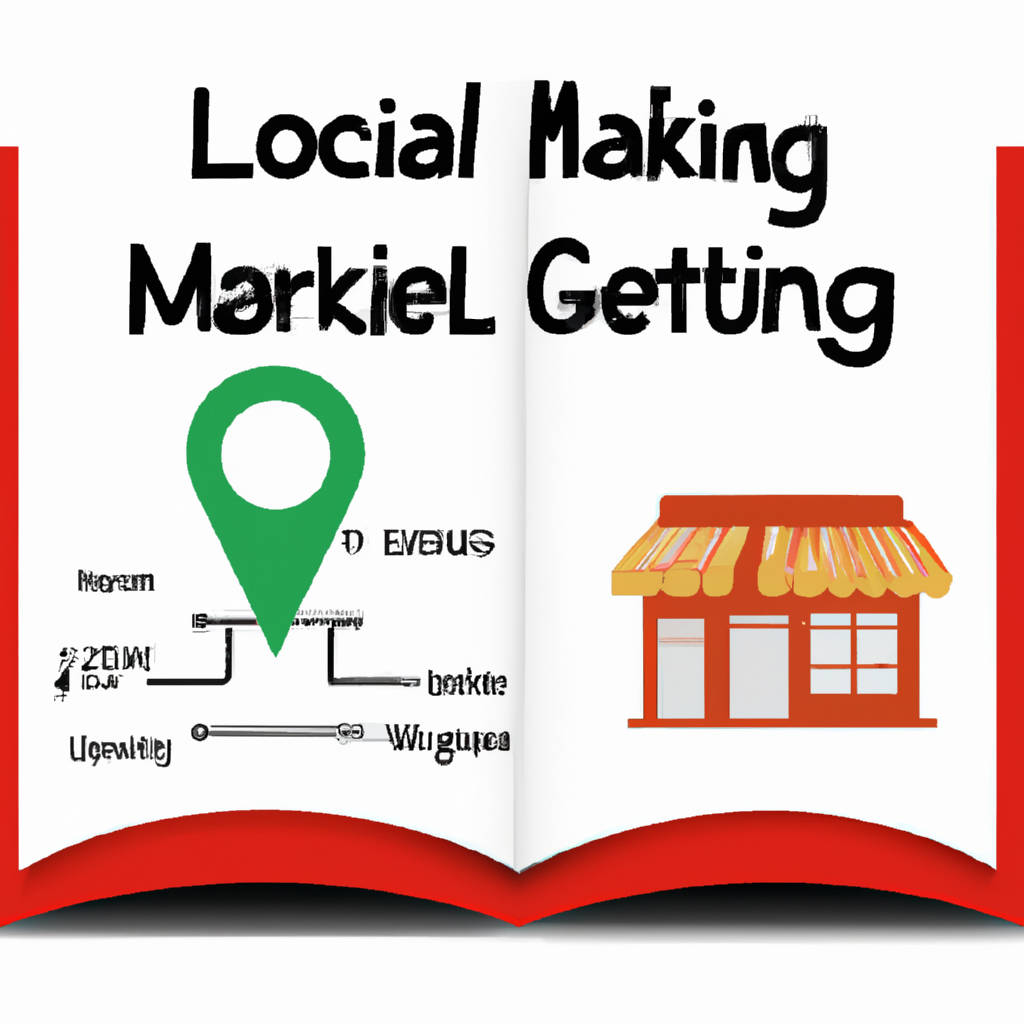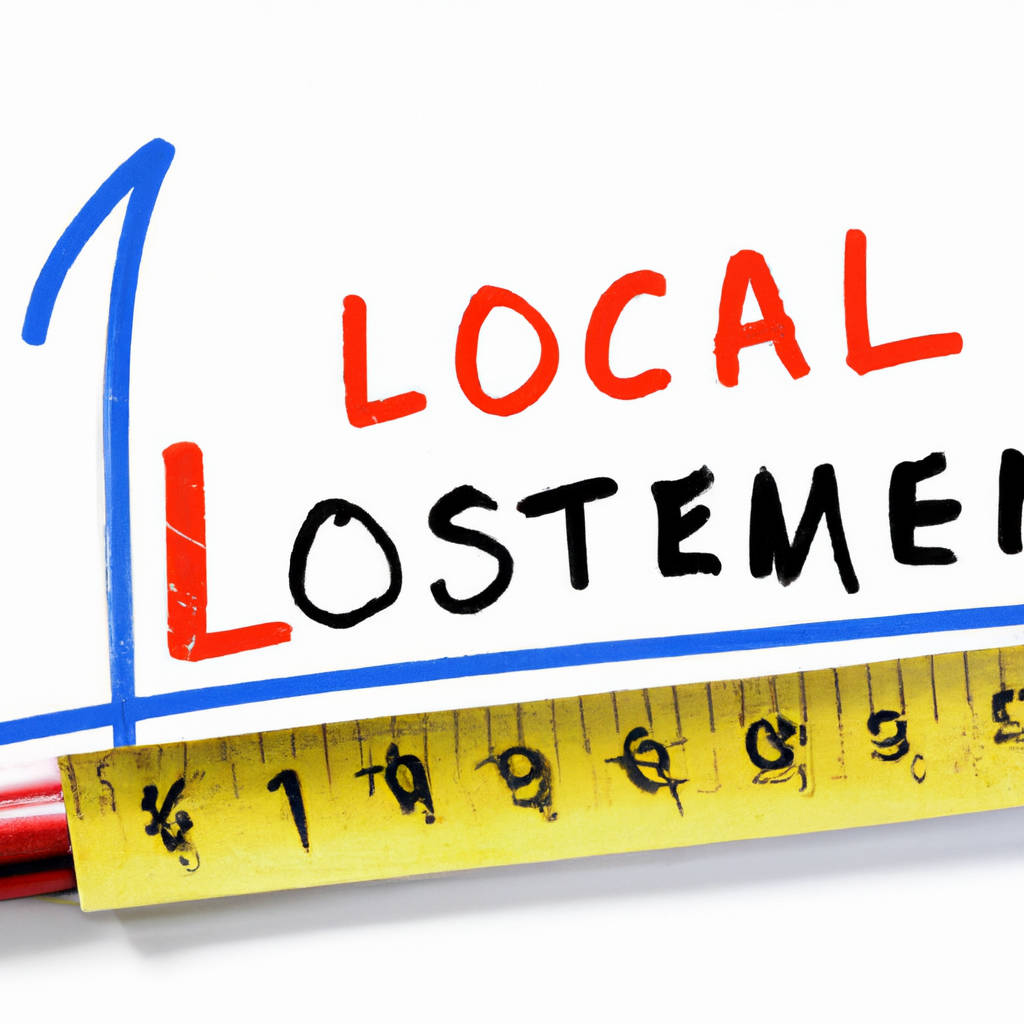The Guide to Local Marketing is a comprehensive resource for businesses looking to reach their target audience in a specific geographic area. This guide offers tips and strategies for creating effective marketing campaigns that resonate with local customers. From optimizing online listings to hosting community events, the guide covers a wide range of tactics to help businesses connect with their local community.
By understanding the unique needs and preferences of local consumers, businesses can tailor their marketing efforts to drive engagement and increase brand awareness. Additionally, the guide provides insights on leveraging social media, local partnerships, and customer reviews to build a strong presence in the community. With the right approach, businesses can establish themselves as trusted and reliable sources within their local market, leading to increased customer loyalty and repeat business. Ultimately, the Guide to Local Marketing empowers businesses to establish a strong foothold in their community and drive long-term success.

Understanding Local Marketing
Understanding local marketing is crucial for businesses looking to establish a strong presence in their community. Local marketing involves tailoring your marketing strategies to target a specific geographic area, taking into account the unique characteristics and preferences of the local population. By understanding the demographics, culture, and behaviors of the local market, businesses can create targeted campaigns that resonate with their audience and drive engagement.
This can include utilizing local language, imagery, and references that are familiar and relatable to the community. Additionally, local marketing allows businesses to build relationships with customers on a more personal level, fostering a sense of trust and loyalty that can lead to repeat business and word-of-mouth referrals. Through targeted efforts such as community events, partnerships with local organizations, and sponsorships of local sports teams or events, businesses can further solidify their presence in the community and establish themselves as a trusted and valued member of the neighborhood.
Overall, understanding local marketing is essential for businesses looking to connect with their target audience on a deeper level and establish a strong foothold in their local market. By taking the time to understand the unique needs and preferences of the community, businesses can create effective marketing campaigns that drive results and build lasting relationships with their customers.
Key Strategies for Local SEO
Local SEO is an essential aspect of any business looking to attract customers in their area. There are several key strategies that can help businesses improve their local search engine rankings and increase visibility to potential customers. One important strategy is to optimize your website with local keywords and phrases that are relevant to your business and location. This helps search engines understand where your business is located and what services or products you offer.
Another important strategy is to claim and optimize your Google My Business listing. This allows you to provide accurate and up-to-date information about your business, such as your address, phone number, hours of operation, and customer reviews. Additionally, creating local content on your website, such as blog posts or articles about events or news in your area, can help improve your local SEO.
Building high-quality backlinks from other local businesses or directories can also boost your search engine rankings. Finally, regularly monitoring your local SEO performance through tools like Google Analytics can help you track your progress and make adjustments as needed. By implementing these key strategies, businesses can improve their local search engine rankings and attract more customers in their area.

Utilizing Local Content Marketing
Utilizing local content marketing is a strategy that businesses can implement to connect with their target audience on a more personal level. By creating content that is relevant to the local community, businesses can establish themselves as trusted and knowledgeable sources in their area. This can help to build brand loyalty and increase customer engagement. Local content marketing can also help businesses to differentiate themselves from their competitors by highlighting their unique offerings and values.
By creating content that speaks directly to the needs and interests of local consumers, businesses can drive more traffic to their websites and increase their overall visibility in the community. Additionally, local content marketing can help businesses to build relationships with other local businesses and organizations, creating opportunities for collaboration and mutual support. Overall, utilizing local content marketing can be a highly effective way for businesses to engage with their target audience and drive growth in their local market.
Harnessing the Power of Online Reviews
In today’s digital age, online reviews have become a powerful tool for businesses to harness the opinions and experiences of their customers. By monitoring and analyzing these reviews, companies can gain valuable insights into what customers like and dislike about their products or services. This information can be used to make improvements and adjustments to better meet the needs and expectations of customers. Additionally, positive online reviews can serve as powerful marketing tools, helping to build trust and credibility with potential customers.
By actively encouraging satisfied customers to leave reviews and addressing any negative feedback in a timely and professional manner, businesses can enhance their online reputation and attract more customers. Overall, harnessing the power of online reviews can be a game-changer for businesses looking to stay competitive in today’s crowded marketplace. By utilizing this valuable feedback from customers, companies can make informed decisions to improve their products and services, strengthen their brand image, and ultimately drive more sales and revenue.

Effective Local Advertising Tactics
Local advertising tactics can be highly effective in reaching a targeted audience within a specific geographic area. One tactic that has proven to be successful is utilizing local events and sponsorships to promote a business or product. By aligning a brand with a popular local event or sponsoring a community organization, businesses can increase their visibility and credibility within the community. Another effective tactic is leveraging social media platforms to target local consumers. By creating geographically targeted ads and engaging with local influencers, businesses can connect with potential customers in a more personalized and authentic way.
Additionally, utilizing local print media such as newspapers and magazines can also be an effective way to reach a local audience. By strategically placing ads in publications that are widely read within the community, businesses can increase their visibility and brand awareness. Overall, effective local advertising tactics involve understanding the unique needs and preferences of a specific geographic area and tailoring marketing efforts to resonate with local consumers. By implementing these tactics, businesses can effectively reach their target audience and drive sales within their local community.
Measuring Success in Local Marketing
Measuring success in local marketing can be a complex process that involves analyzing various metrics and data points to determine the effectiveness of a marketing campaign. One common metric used to measure success in local marketing is foot traffic, which refers to the number of people who visit a physical location as a result of a marketing campaign. This metric can provide valuable insights into the effectiveness of a campaign in driving customer engagement and increasing brand awareness.
Another important metric to consider is customer retention, which refers to the number of customers who continue to patronize a business after initially engaging with a marketing campaign. High customer retention rates can indicate that a marketing campaign is successful in building customer loyalty and trust. Additionally, measuring online engagement, such as website traffic, social media interactions, and online reviews, can provide valuable insights into the effectiveness of a marketing campaign in reaching and engaging with customers in the digital space. By analyzing these various metrics, businesses can gain a better understanding of the impact of their local marketing efforts and make informed decisions on how to optimize future campaigns for even greater success.

Creating a Comprehensive Local Marketing Plan
Creating a comprehensive local marketing plan is essential for businesses looking to reach their target audience and drive sales. A well-thought-out plan includes a variety of strategies to maximize a company’s visibility and attract customers in the local community. This may include utilizing social media platforms to engage with customers, optimizing the company website for local search engine optimization, and partnering with local businesses or organizations for joint promotions. Additionally, businesses can leverage traditional marketing tactics such as direct mail campaigns, local event sponsorships, and advertising in local publications to reach potential customers.
By combining these various marketing tactics, businesses can create a cohesive and effective plan that targets the specific needs and preferences of their local audience. It is important for businesses to continuously evaluate and adjust their marketing plan to ensure it remains relevant and effective in reaching their target market. By investing time and resources into creating a comprehensive local marketing plan, businesses can increase brand awareness, attract new customers, and ultimately drive sales in their local community.